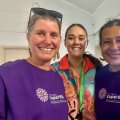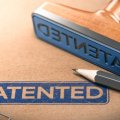A University of Queensland researcher has co-authored the world's first graduate textbook on quantum computation and quantum information.
Associate Professor Michael Nielsen, Principal Research Fellow in UQ's new Special Research Centre for Quantum Computer Technology, said the book was written to help people learn the "basic language" and orient themselves in the field.
"It's a multidisciplinary field with computer scientists, mathematicians and physicists all getting involved. We needed a book to give all the key background material in one place," he said.
"Computer scientists would find it hard to read introductions to quantum mechanics written by physicists - we wanted to overcome that problem and put this into everyone's language. We felt that the field was mature enough that we could produce something of lasting value."
The book, Quantum Computation and Quantum Information (Cambridge University Press) was written with Dr Isaac Chuang, an IBM researcher and a consulting professor at Stanford University. It has been published in the UK, the United States and Australia.
Dr Nielsen graduated Bachelor of Science from UQ in 1993 and honours in mathematics in 1994. He completed his Masters of Science in physics at UQ and went to the USA as a Fulbright Scholar, obtaining a PhD in quantum information theory at the University of New Mexico in 1998. He was Tolman Postdoctoral Fellow at the California Institute of Technology and spent a year at Los Alamos National Laboratory as a visiting research fellow before returning to UQ in February.
Dr Nielsen's research focuses on unlocking the secrets of quantum entanglement - a phenomenon in quantum mechanics which could be manipulated to achieve certain tasks.
"I think of quantum entanglement as a completely new type of physical resource - one that is not present in the classical world," he said.
"The discovery of this new type of physical resource is so significant that it could be compared to the transition from the Bronze Age to the Iron Age. At first people don't even know what the new resource is good for (it took well over 1000 years to figure out that iron was useful) but once you realise its usefulness, all sorts of things suddenly become possible.
"What I'm trying to do is understand the rules governing the behaviour of this resource. How can you create it? How can you observe it? Can it be used to do other things like communication or cryptography?
"Really the whole endeavour of quantum information science is to develop tools which will give us a much deeper level of insight into what's going on in quantum mechanics - which is what governs everything in the world. That's why I'm interested."
Quantum information research was vital for developing very fast computers, but more important results would come from an enhanced understanding of the field, Dr Nielsen said.
"For example, electricity is a commonplace now but in the 18th century it just looked like a bunch of idle researchers playing around - at the time no one could see what it would be good for. Michael Faraday (the 19th century English physicist who discovered electromagnetic induction) was asked ?What use is your research, Sir?'. And he replied, ?What use is a new-born babe?'.
"When you develop deep insights into how the world works in general, they have consequences which you can't foresee and are far more likely to be of interest in 100 years. When we develop a new understanding of quantum mechanics, things we can't even imagine now will become possible."
For more information, contact Dr Michael Nielsen (telephone 3365 2422 or email nielsen@physics.uq.edu.au) or Helen Lewis in the UQ Communications Office (telephone 3365 2619 or email h.lewis@mailbox.uq.edu.au).
.jpg)



